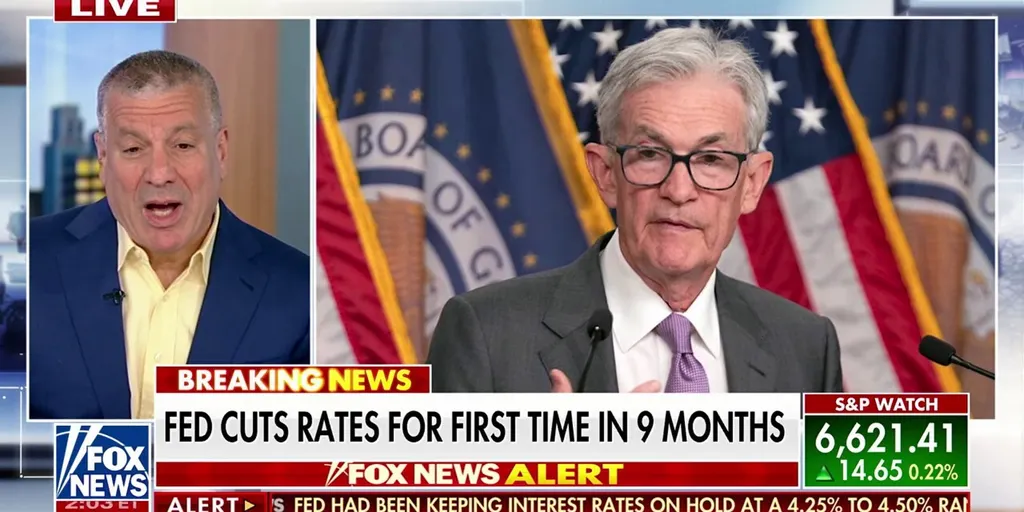By Bruce Packard
Copyright moneyweek

Try 6 issues free
View all Investing
Stocks and Shares
Commodities
Personal Finance
Personal Finance
Personal Finance
Personal Finance
View all Personal Finance
Bank accounts
Credit cards
View all Economy
Global Economy
MoneyWeek quizzes
Spending it
On this day in history
Latest magazine issue
MoneyWeek glossary
Newsletters
Newsletter sign-up
Manage my newsletters
Latest newsletter
Newsletter sign up
Inflation live
MoneyWeek quiz
£560 state pension rise
Investment Trusts
Three poor deals for trust investors
Small shareholders need protection in related-party deals, says Bruce Packard
Newsletter sign up
When you purchase through links on our site, we may earn an affiliate commission. Here’s how it works.
Downing’s bid for the solar and hydro fund it runs did not seem generous
(Image credit: Getty Images)
Bruce Packard
20 September 2025
in Features
A healthy aspect of capitalism is that the interests of small shareholders are mostly aligned with large shareholders. When an amateur investor buys shares in the same company as a much larger institution or wealthy individual, the amateur and professional shares in the gains or losses. A majority shareholder might have greater voting rights and be able to influence strategy, but they cannot divert assets away from the small shareholders, to line their own pockets. This is normally true – but it is not always the case.
In 2025, we’ve seen three deals in the investment-trust sector where large shareholders or associated entities appear to have used their position to the disadvantage of minority investors. In all cases, this arose when the shareholder or associated entity has been on both sides of a deal in some form or another.
These deals raise questions about treating minority shareholders fairly and governance in the sector, at a time when many trusts trade at a large discount to net asset value (NAV). All followed the correct procedure and were in no way illegal or against the rules. Yet it is not hard to see why investors might view them as a sign that the system favours wealthy individuals and large institutions. That seems unhealthy.
Subscribe to MoneyWeek today and get your first six magazine issues absolutely FREE
Get 6 issues free
Sign up to Money Morning
Don’t miss the latest investment and personal finances news, market analysis, plus money-saving tips with our free twice-daily newsletter
Don’t miss the latest investment and personal finances news, market analysis, plus money-saving tips with our free twice-daily newsletter
‘A cautionary tale across investment trust boardrooms’
The most widely criticised example is Dan Loeb’s Third Point Investors (formerly LSE: TPOU and now LSE: MLHL). This trust was a feeder fund, investing all its assets in Loeb’s flagship Third Point hedge fund. Earlier this year, it announced plans for a reverse takeover with Malibu Life, a reinsurance vehicle also created by Loeb, to transform it into a reinsurer.
It offered only a partial tender offer at a discount to NAV for investors who were not keen on this new strategy. Management won a vote on this plan in August, but would not have done so without votes from shares controlled by Loeb and by the fund’s “VoteCo”.
A VoteCo is a structure set up for regulatory reasons to hold a block of voting shares (it ensures the fund will be a foreign issuer under US securities rules) that is supposed to vote in the interests of all ordinary shareholders.
Loeb would not have been able to vote his shares on the deal at all if the Financial Conduct Authority had not relaxed the rules last July.
“We suspect this deal will live in infamy, a cautionary tale across investment-trust boardrooms and shareholder bases for years to come,” said Winterflood’s analyst Shavar Halberstadt. “Trapping shareholders in an incomparable vehicle in spite of clear opposition” from shareholders “is far from best practice”.
Since Loeb is himself a successful activist, known for pressuring management to act in the best interests of investors, this behaviour is all the more disappointing.
A lesser, but still unsatisfactory, example is Downing Renewables & Infrastructure (LSE: DORE). This trust was trading at a large discount to NAV and Bagnall Energy, its top shareholder, increased its stake from 16% to 25% in January and February. It then bid for the rest at a premium to the undisturbed price, but a 7% discount to NAV. Bagnall is an inheritance-tax management vehicle run by Downing, the manager of DORE. So on the one hand, Downing was collecting fees based on the prevailing NAV, but on the other hand saying that it’s not worth that much with a bid below NAV. Note too that Bagnall’s enlarged 25% stake would give it enough to block a competing bid.
Downing touts itself as a “responsible investor, invest[ing] for a return, while caring for the world we live in”, but it could have treated investors with more respect. Investors ultimately backed the deal, with 15% of votes cast being against. Yet had Bagnall bid earlier instead of building up its stake first, it could have increased the chance of rival offers emerging.
Maximising value for other shareholders
Finally, take Ocean Wilsons (LSE: OCN) and Hansa (LSE: HAN), as discussed recently by MoneyWeek columnist Max King.
As an OCN shareholder, I am less happy than Max with this outcome. After selling its 56% interest in the Wilsons Sons ports business, OCN had $600 million of cash from the sale, plus a portfolio of mostly underperforming hedge funds and private equity worth $341 million. Its book value was $940 million (£699 million), or £19.50 per share.
Management said it would assess options to “maximise shareholder value” and launched a tender to buy back 20% of OCN’s shares at 1,543p, costing just over £100 million. Yet the next step was to merge with Hansa, which, like OCN, is controlled by William Salomon and the Salomon family. Arnhold, a US activist opposed to the deal, pointed to the market reaction in Ocean Wilsons’ shares – down 17% to just over £12 – and the 20% rise in the share price of Hansa as evidence to demonstrate that Ocean Wilsons’ minority shareholders are losing out. It is hard to see why an OCN investor who did not also hold Hansa would vote to merge at such a steep discount to NAV, particularly when over half of OCN’s book value was cash. Results last Friday show that just under 24% of shareholders who voted were against the deal.
Ironically, while Salomon might be good at extracting value from minority shareholders, OCN has shown zero ability when it comes to selecting funds. Since June 2015, its portfolio has increased in value by less than 40% at a time when MSCI World index has increased by 2.6 times.
Had Salomon followed the advice often given to new investors – buy a low-cost index tracker and don’t try to think you are better than anyone else at beating the market – OCN would have been far more successful. Salomon’s father, Walter Salomon, was known as one of the last great European bankers. Walter may have passed on his wealth, but the scion appears not to have inherited his father’s acumen.
This article was first published in MoneyWeek’s magazine. Enjoy exclusive early access to news, opinion and analysis from our team of financial experts with a MoneyWeek subscription.
Sign up for MoneyWeek’s newsletters
Get the latest financial news, insights and expert analysis from our award-winning MoneyWeek team, to help you understand what really matters when it comes to your finances.
Contact me with news and offers from other Future brandsReceive email from us on behalf of our trusted partners or sponsorsBy submitting your information you agree to the Terms & Conditions and Privacy Policy and are aged 16 or over.
Bruce Packard
Social Links Navigation
Contributor
Bruce is a self-invested, low-frequency, buy-and-hold investor focused on quality. A former equity analyst, specialising in UK banks, Bruce now writes for MoneyWeek and Sharepad. He also does his own investing, and enjoy beach volleyball in my spare time. Bruce co-hosts the Investors’ Roundtable Podcast with Roland Head, Mark Simpson and Maynard Paton.
The challenge with currency hedging
A weaker dollar will make currency hedges more appealing, but volatile rates may complicate the results
Prabowo Subianto: Indonesia’s Deng Xiaoping
Prabowo Subianto, like his Chinese hero, is taking power in his 70s with big ambitions for his country. Yet many view his return to politics with dread
You might also like
The challenge with currency hedging
A weaker dollar will make currency hedges more appealing, but volatile rates may complicate the results
8 of the best properties for sale with orangeries
From a converted Victorian Catholic school with a chapel in Kingston Upon Thames to a 12-acre country estate with mature gardens and a lake in Nantwich, Cheshire, we look at some of the best properties for sale with orangeries
Should you invest in Hansa Investment Company?
William Salomon has finally brought the two trusts he controls together. Should investors buy in?
Is Britain heading for a big debt crisis?
Things are not yet as bad as some reports have claimed. But they sure aren’t rosy either, says Julian Jessop
Bitcoin ‘has become the reserve asset of the internet’
The cryptocurrency has established itself as the electronic version of gold, says ByteTree’s Charlie Morris
‘Labour’s failure on house building is turning into a national emergency’
Labour’s plans on house building are not working out and it’s not hard to work out what has gone wrong, says Matthew Lynn
Small UK industrial stocks are hidden gems
Ed Wielechowski of the Odyssean Investment Trust highlights three of his favourite British small-cap industrial stocks
Aurora Innovation is running on empty – is it overvalued?
Aurora Innovation, a maker of self-driving trucks, may have promised far more than it can deliver
View More \25b8
Useful links
Subscribe to MoneyWeek
Get the MoneyWeek newsletter
Latest Issue
Financial glossary
MoneyWeek Wealth Summit
MoneyWeek Live Reports
Most Popular
MoneyWeek share tips
MoneyWeek savings stories
MoneyWeek tax stories
Contact Future’s experts
Terms and Conditions
Privacy Policy
Cookie Policy
Advertise with us
MoneyWeek is part of Future plc, an international media group and leading digital publisher. Visit our corporate site.
Future Publishing Limited Quay House, The Ambury,
BA1 1UA. All rights reserved. England and Wales company registration number 2008885.



